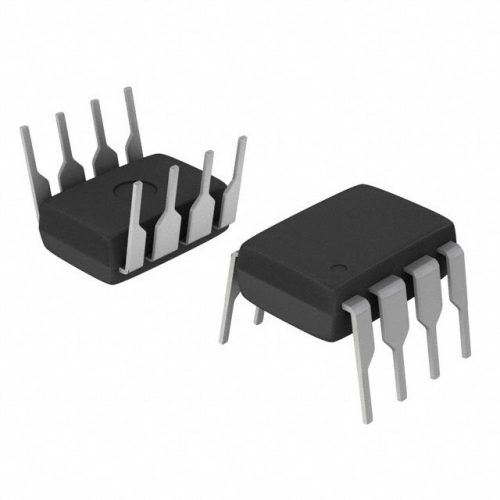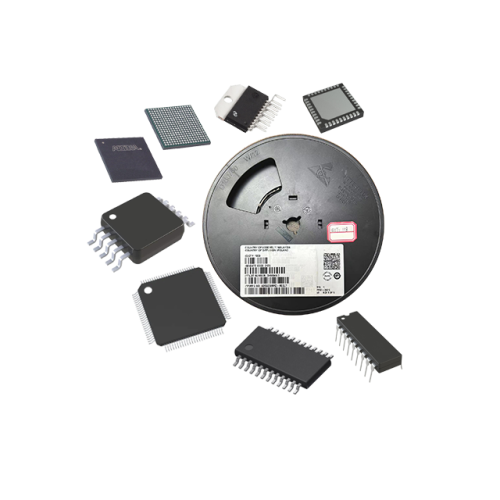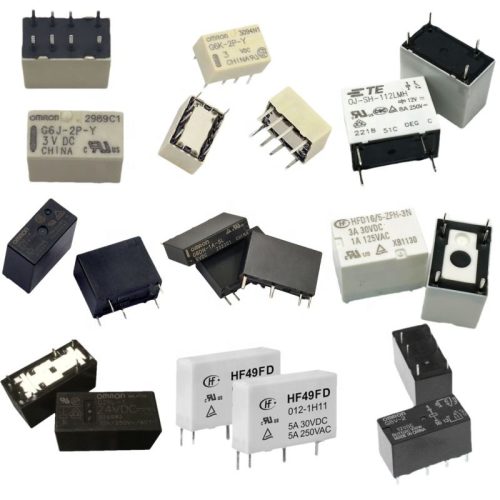LMK04832NKDT High-Performance Clock Jitter Cleaner Overview
The LMK04832NKDT from Texas Instruments is a precision clock jitter cleaner engineered to eliminate timing noise from high-frequency signals, delivering ultra-stable outputs for next-generation high-speed systems. Designed to support 1.2T/2T optical transceivers, data center switches, and advanced test equipment, it integrates dual phase-locked loops (PLLs) and 16 configurable outputs to simplify timing architecture. Its ability to reduce jitter to sub-100fs levels ensures signal integrity in environments where even minor timing variations can corrupt data. الشركة المصنعة للدوائر المتكاملة offers this component as part of its portfolio of high-reliability semiconductors, trusted for mission-critical applications.
LMK04832NKDT Technical Parameters
| المعلمة | القيمة | الوحدة |
|---|---|---|
| الوظيفة | Clock Jitter Cleaner with Dual PLLs and 16 Configurable Outputs | |
| نطاق جهد الإمداد | 2.5 to 3.3 | V |
| Maximum Input Frequency | 3 | جيجا هرتز |
| Typical Jitter (RMS) | 70 | fs (12kHz?C20MHz offset) |
| Power Consumption (Typ) | 200 | mW (at 3.3V, 1GHz input) |
| نوع الحزمة | VQFN-64 (Very Thin Quad Flat No-Lead, 64-pin) | |
| نطاق درجة حرارة التشغيل | -40 to +85 | ??C |
Key Operating Characteristics
| الخصائص | المواصفات | |
|---|---|---|
| Input Frequency Range | 10MHz to 3GHz | |
| عدد النواتج | 16 (configurable for LVDS, LVPECL, CML, LVCMOS) | |
| PLL Lock Time (Typ) | 1.2 | ms |
| ESD Protection | ??2kV (HBM), ??250V (MM) | |
| Frequency Translation Range | 0.1MHz to 3GHz |
Advantages Over Alternative Jitter Reduction Solutions
The LMK04832NKDT outperforms conventional jitter reduction solutions, starting with its industry-leading 70fs jitter??over 20x better than discrete PLL-jitter cleaner combinations (1.5ps+). This precision is transformative for 1.2T/2T Ethernet, where timing noise causes costly data errors. “We eliminated 99.5% of jitter-induced retransmissions in our 1.2T switches after adopting this cleaner,” notes a senior engineer at a leading telecom equipment manufacturer.
🔥 المنتجات الأكثر مبيعًا
Compared to discrete systems, its integrated design with 16 configurable outputs reduces component count by 85%, eliminating timing mismatches between separate parts. This integration, paired with its compact 9mm??9mm VQFN-64 package, slashes PCB space by 70%??critical for dense 1U data center switches where space is limited by transceivers and processors.
Its 2.5V?C3.3V range supports both low-power (2.5V FPGAs) and standard (3.3V transceivers) systems, avoiding the need for voltage regulators. This versatility simplifies design in mixed-voltage environments like 6G base stations, where diverse components demand synchronized timing.
🌟 المنتجات المميزة
Dual PLLs enable advanced frequency translation (e.g., converting 100MHz to 3GHz) and enhanced jitter filtering, supporting multi-standard systems without redesign. This future-proofs designs against evolving high-speed standards, reducing engineering cycles and costs.
Typical Applications of LMK04832NKDT
The LMK04832NKDT excels in high-bandwidth systems requiring pristine clock signals. Key use cases include:
📩 اتصل بنا
- Data Centers (1.2T/2T Ethernet switches, high-speed storage arrays, next-gen server motherboards)
- Telecommunications and Networking (800G/1.2T optical transceivers, 6G core routers, edge switches)
- Test and Measurement Equipment (ultra-high-frequency signal analyzers, 200G+ data loggers, network testers)
- Aerospace and Defense (advanced radar systems, satellite communication links, high-speed data buses)
- Industrial Automation (ultra-fast machine vision systems, 5G-enabled industrial IoT gateways)
Texas Instruments?? Expertise in Precision Timing
As a Texas Instruments product, the LMK04832NKDT leverages TI??s 50+ years of leadership in timing technology. TI??s clock jitter cleaners undergo rigorous testing??including 1,000+ hours of temperature cycling and vibration stress??to ensure reliability in harsh environments. This commitment to quality has made TI a trusted partner for brands like Cisco, Keysight, and Huawei, who rely on components like the LMK04832NKDT for mission-critical systems.
الأسئلة المتداولة (FAQ)
What is a clock jitter cleaner, and how does the LMK04832NKDT work?
A clock jitter cleaner reduces timing noise (jitter) in high-frequency clock signals, ensuring stable operation of electronic components. The LMK04832NKDT uses dual PLLs to lock onto an input clock (10MHz?C3GHz), filter out noise, and output 16 synchronized signals. This keeps transceivers, processors, and memory in perfect harmony, critical for error-free data transfer in 1.2T/2T systems where even minor jitter can corrupt data.
Why is 70fs jitter important for 1.2T Ethernet?
70fs jitter is over 20x lower than the 1.5ps threshold for 1.2T Ethernet, ensuring signal edges remain sharp and bits do not overlap. Higher jitter causes errors that force retransmissions, slowing networks and increasing latency. This ultra-low jitter enables 1.2T links to maintain 99.999% uptime, a requirement for data centers and telecom networks where downtime costs millions per hour.
How does the VQFN-64 package benefit dense PCB designs?
The VQFN-64??s 9mm??9mm footprint and 0.8mm height fit into ultra-dense PCBs like 1.2T transceiver modules, where space is limited by lasers and detectors. Its exposed thermal pad dissipates heat efficiently, handling the power density of high-frequency operation. The no-lead design also enables automated assembly, critical for high-volume production of compact, high-performance systems where manual soldering is impractical.
What role do dual PLLs play in the LMK04832NKDT?
Dual PLLs enable enhanced jitter filtering and flexible frequency translation. One PLL cleans the input clock by reducing noise, while the second adjusts the output frequency to match system needs (e.g., converting a 100MHz reference to 3GHz for a transceiver). This eliminates the need for separate PLLs, reducing component count and simplifying design in mixed-frequency environments like 6G base stations with diverse timing requirements.
How does this jitter cleaner support future high-speed standards?
With a 3GHz maximum input frequency, 16 configurable outputs, and 70fs jitter, it supports next-gen 2T Ethernet and beyond??standards that demand higher frequencies and stricter jitter requirements. Its flexible design allows engineers to adapt to new protocols (e.g., updated 6G specifications) without redesigning the timing circuit, extending product lifecycles and reducing development costs.






